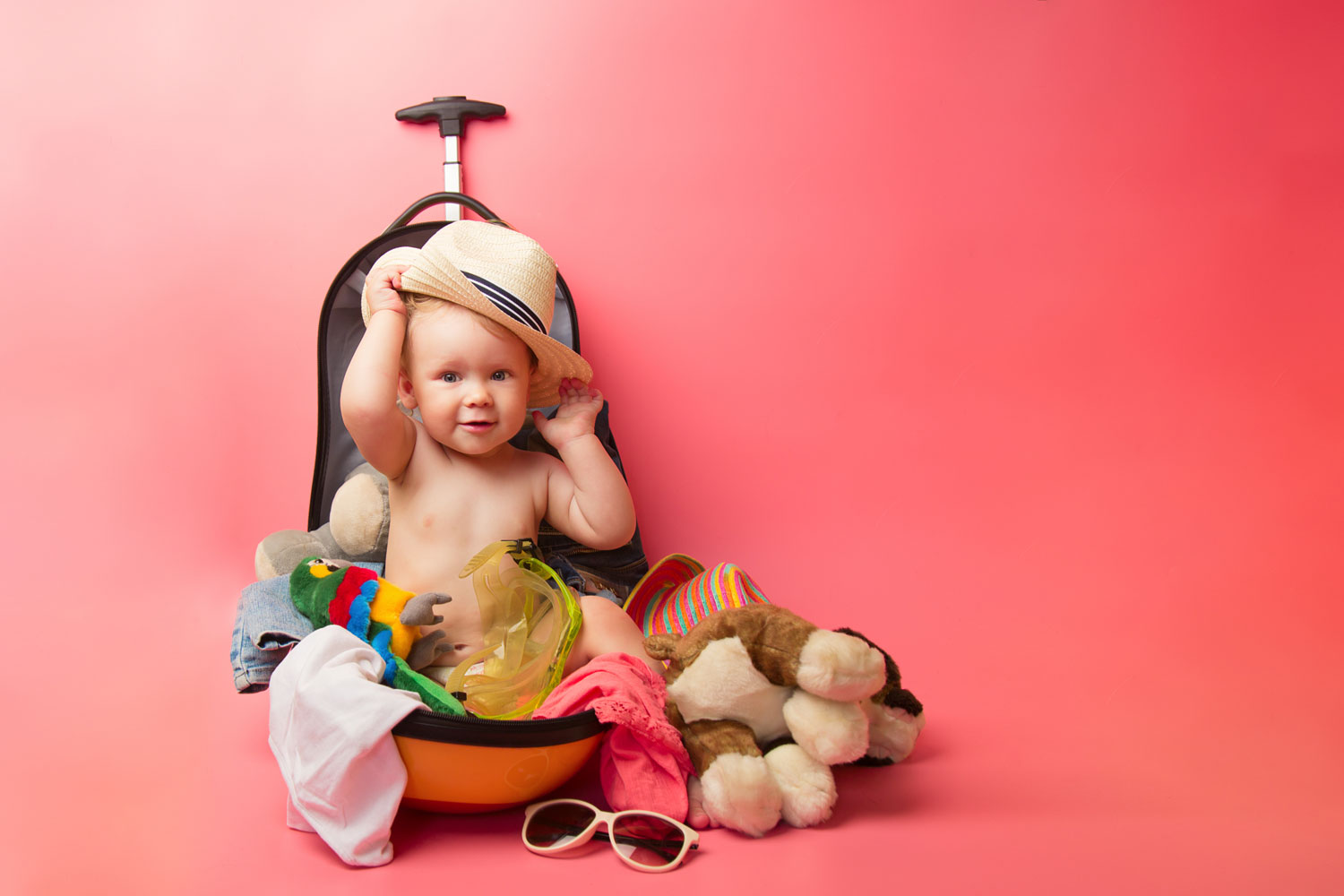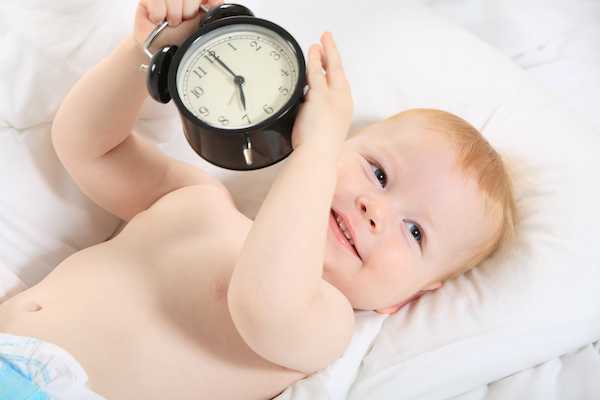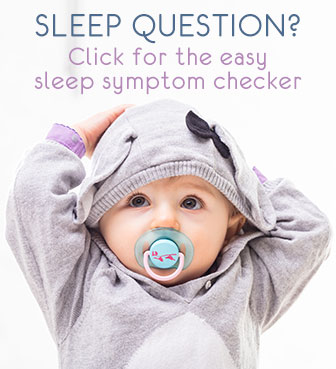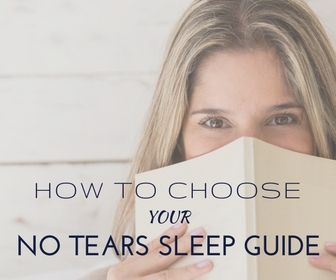Traveling With Your Baby? Do this to keep sleeping well!
by Heidi Holvoet

Proudly presenting … my tried-and-tested strategies for traveling with your baby AND keep sleeping well along the way. They’ll also help you keep up with the sleep work – nap schedule, self-soothing practice, sleeping through the night etc. – you started back home.
So, I know traveling may seem pretty daunting right now.
It might make you feel stressed, anxious, uncertain, and you may even wish you didn’t have to go. And it’s no wonder if you feel like that, it’s often simply be overwhelming. But I’ve got a few gems for you here that just might help you have a fun and relaxed holiday after all.
First thing is – and if you’re not sure about this, please trust me on this and bear with me – it’ll be OK to relax about sleep stuff while you’re traveling: you won’t damage your sleep work indefinitely.
In fact, once you manage to go the flexible regularity way for the schedule (which I detail below), and practice the good sleep essentials and techniques you’re used to, you might actually find that your travels help improve sleep more than hampering it.
What to pack
When packing: bring along the essentials of your baby’s sleep environment at home. Think same sleeping bag(s), same sheets, same cuddly toy, same PJs, same decorations, etc. For all of these it’s best if they’re unwashed for at least a few days. This’ll bring the scents from home, along with the familiar objects.
Having recognizable scents, textures and materials helps a baby adjust and feel at home when away, which naturally helps improve sleep.
If your baby is used to sleeping in a dark room, take something to cover windows. This can be as simple as masking tape (always bring the tape! 🙃) and aluminum foil or bought blackout blind material.

On the road or in the air …
To nap or not to nap? While traveling, allow your baby to sleep whenever he/she is sleepy or falls asleep by him/herself, even if that’s outside of regular nap times.
Unless your trip is only an hour or two long and there’s no time difference, you’ll want your little boy or girl to get any and all sleep possible: traveling is tiring so all (extra) sleep is welcome. It’ll reduce over-tiredness once arrived, which again helps improve sleep on location.
Hydrate hydrate hydrate! Make sure your baby gets lots and lots of fluids throughout the trip. Dehydration often makes traveling more exhausting than it already is. It also immediately reduces sleep quality and the overall feeling of well-being.
So, I can’t stress enough how important this is.
We all know it but still, once on the road, it’s so easy to forget. Yet it’s so easy to do. Extra hydration for your baby or toddler can be giving (lots of!) extra sips of formula, a few extra moments at the breast, sips of water, fresh fruit snacks if your baby is on solids already, etc. Avoid all sugary snacks of course and stick to healthy, protein-rich snacks and/or small meals.
Sleep schedules and time differences
Quiet time: Regardless of time differences and whether or not you manage normal nap times, above all ensure plenty of rest moments!
This can be as simple as sitting down for a snack, reading a book or playing a quiet game. Any baby or young child needs these quiet moments, especially during busy holiday times. Resting enough, even if not actually napping, helps avoid over-tiredness which is crucial.
If no time difference between home and away:
Keep your nap and bedtime schedule exactly the same as at home, as well as all routines etc. To the extent it’s practically doable of course. And be flexible e.g. do naps on the move to make whatever holiday activities you want to do possible.
Having fun while away is just as important as offering regularity so aim for a healthy balance.
If time difference:
If you’re staying for just 1-3 days, and if the new local time is no more than 2-3 hours back or ahead, you can consider back-calculating and keeping naps as they were at home, if also doable practically. Be flexible though to take into account extra travel-tiredness and activities on location.
If you’re staying for longer and/or the time difference is quite large: upon arrival: set all your clocks to local time and don’t calculate back to the time you came from. Then do your usual sleep schedule based on the new time.
Yes, all of the above can lead to disrupted sleep schedules and your baby will need to adjust, but that’s normal with all travel. Offering regularity and flexibility at the same time is your best bet to keep over-tiredness at bay, and therefore get the most sleep.
Once arrived
One of the very first things to do when you arrive at a new place: together with your baby, explore the house/room and in particular introduce your baby to his/her sleeping spot. Make this a calm but very pleasant and positive experience.
Regardless of age, show them, tell them, that this is where they’ll sleep, also show where you’ll be, etc. If possible do this 2-3 times between arrival and bedtime. If you arrive in the middle of the night, just once, before the bedtime routine, is of course fine.
The first few days
Be super clear and consistent with daytime/night time light cues. To do this, open curtains and switch on bright lights as soon as the day starts, and dim lights from 6pm onwards. Make this independent of how light or dark it is outside.
Exaggerating these cues helps amAzingly with setting body clocks right – we adults should do it too when traveling – it’s the most proven way to beat jetlag.
Remember to keep offering lots of fluids still too.
Throughout your stay
Keep a close eye on how your baby fares, and adjust to help keep over-tiredness at bay. Yes, it’s important to have fun and experience lots of exciting things but never at the expense of sufficient rest time. It’s all about balance.
Continue with very clear day/night light cues and hydration throughout.
Remember, whether you travel for fun or simply have to travel with your baby: it can indeed mess up nice schedules and sleep habits you had at home BUT traveling is a good life experience and a change of scenery that in spite of the hiccups, often brings positive surprises. And it even ends up improving sleep skills for many.
As long as you guide him or her confidently and in a relaxed (cool 😎 ) way, traveling is an experience that helps your baby be more flexible, and become more confident. And that again will help with your self-soothing practice and sleeping through the night work once you get back.
Safe travels!
x Heidi ❤️

Baby waking every hour?
by Heidi Holvoet, PhD

A Bedtime Routine: Settling To Sleep Like A Charm
by Heidi Holvoet, PhD

Separation Anxiety
by Heidi Holvoet, PhD

Colic
by Heidi Holvoet, PhD

Why does my baby wake up every hour?
by Heidi Holvoet, PhD




